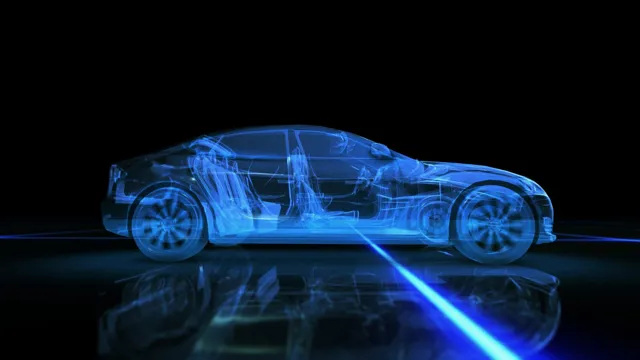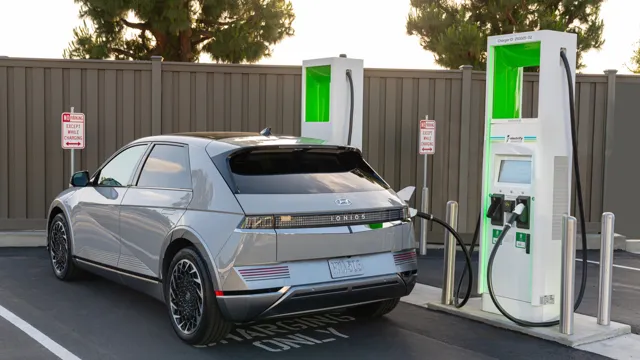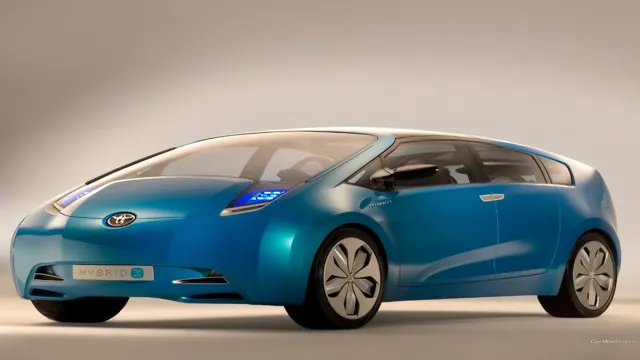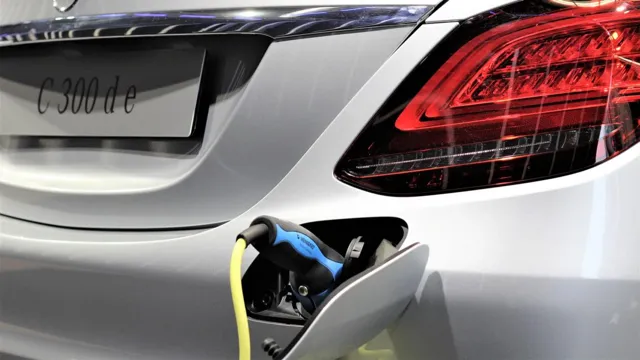Revolutionizing Transportation: Exploring the Exciting Electric Car Technology Challenge
Electric cars have been around for a while now, but it wasn’t until recently that they became a more realistic option for the general public. With the rise in climate change awareness and the push for sustainable living, automotive manufacturers have started to focus more on electric car technology. However, the challenges that come with this transition are daunting.
The electric car technology challenge is not only about creating a car that runs on electricity but also about developing an infrastructure to support it. In this blog post, we’ll explore the challenges associated with electric car technology and how they’re being tackled by various companies. Join us as we delve into the world of electric cars and the futuristic technology that’s making them possible.
The Current State of Electric Cars
The electric car industry is rapidly evolving and faces numerous challenges. One of the main challenges for electric car technology is the development of batteries that provide enough power to cover long distances while being affordable and durable. Moreover, electric cars’ charging infrastructure is still limited, and it is not always easy to find a charging station on long trips.
Another hurdle is the high cost of purchasing an electric vehicle compared to traditional gas vehicles. However, with government incentives and new technology advancements, the cost of owning an electric car is decreasing. Besides, electric cars have a much lower environmental impact, and the adoption of renewable energy sources can make them even more sustainable.
While there are still some challenges to overcome, electric car technology is rapidly advancing, and the future looks promising.
Battery Life and Range Limitations
When it comes to electric cars, one of the biggest concerns for potential buyers is battery life and range limitations. Fortunately, the current state of electric cars is more advanced than ever before. Many modern electric cars can travel up to 200-300 miles on a single charge, which is a huge improvement from the early days of electric vehicles.
However, it’s important to note that factors such as weather conditions, driving style, and terrain can all impact the range of an electric car. To combat this, some electric cars now come with features such as regenerative braking, which can help extend the range of the vehicle. There are also new technologies in development, such as solid-state batteries, which could potentially provide even greater range and faster charging times.
While there are still some limitations to electric cars, it’s clear that the industry is constantly innovating and improving to provide consumers with a more eco-friendly and efficient mode of transportation.
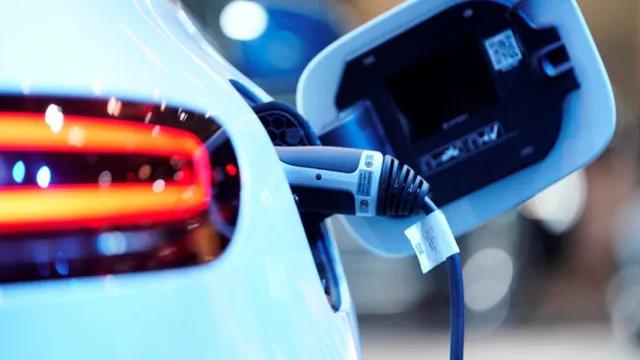
Charging Infrastructure and Availability
The current state of electric cars is an exciting one, with more and more people making the switch to eco-friendly vehicles. However, one major concern when it comes to electric cars is the availability and accessibility of charging infrastructure. While many cities and towns now have public charging stations available, the availability can still be sporadic or limited.
Some areas may have a higher demand for charging stations than others, causing congestion and long wait times. On top of that, while electric car battery technology has come a long way, the range of some models can still be limited, leading drivers to plan their trips around the location of charging stations. Despite these challenges, the growth of electric cars continues to drive the development of charging infrastructure, making it easier for people to adopt a more environmentally conscious mode of transportation.
The Advancements in Electric Car Technology
The rapid evolution of electric car technology has presented both remarkable opportunities and challenges. Electric cars are already starting to compete with their fossil-fuel counterparts, but there is still much room for growth. One of the biggest challenges is battery life, as it remains the most significant limiting factor for the widespread adoption of electric cars.
As such, manufacturers are working tirelessly to push battery technology to the limit, attempting to create batteries that can go further and last longer. Another challenge is developing a widespread charging infrastructure for electric cars, making them as convenient as traditional gas stations. This is a significant roadblock, but great strides have been made.
Despite these challenges, recent advancements are very encouraging, with new developments that promise better battery technology, longer ranges, and faster charging times. With continued investment in technology and innovation, the future of electric cars is bright, and infinite possibilities await.
Improved Battery Technology
Improved Battery Technology The advancements in electric car technology have led to the development of improved battery technology, which is a significant factor in increasing the range of electric vehicles. Lithium-ion batteries, which are commonly used in electric cars, have undergone significant research to increase their energy density, improve their safety, and reduce their production costs. These advancements have made electric cars more efficient and accessible to a wider audience.
The development of solid-state batteries, which have higher energy densities and fewer safety concerns, holds enormous potential for the future of electric vehicles. With the continued improvement in battery technology, we can expect electric cars to become more affordable, have longer ranges, and become increasingly popular. The use of electric cars will pave the way for a cleaner and more sustainable future.
Wireless Charging Innovation
Wireless charging technology has been gaining momentum in recent years, especially in the electric car industry. This innovation allows drivers to charge their vehicles without the need for cords or plugs, making the charging process more convenient and seamless. Tesla, BMW, and Nissan are just a few car manufacturers that have already introduced wireless charging technology to their vehicles, and many more are expected to follow suit in the near future.
With advancements in technology, experts predict that wireless charging stations will become more widely available, allowing drivers to charge their vehicles at home, work, and even on the go. This breakthrough technology is not only beneficial for the environment but also for the user’s convenience. Imagine being able to charge your car without having to leave your house, or while you’re running errands.
The possibilities are endless, and the future looks bright for the wireless charging industry.
Regenerative Braking System Improvement
Electric car technology has significantly progressed over the years due to advancements in various systems, including the regenerative braking system. This system is designed to capture the kinetic energy produced during braking and convert it into electrical energy that is used to recharge the battery. The latest regenerative braking technology not only captures more energy but also improves the efficiency of the braking system.
This improvement has resulted in greater range and minimized energy loss, making electric cars more practical and sustainable. With the increase in the popularity of electric cars, it’s exciting to see the technological advancements geared towards making them more efficient and reliable. The regenerative braking system is just one example of how technology is revolutionizing the automobile industry.
As more players join the market, we can expect even more improvements, and ultimately, more sustainable options for transportation.
The Impact of Electric Cars on Society
As we continue to explore electric car technology, its impact on society is becoming increasingly clear. The adoption of electric cars presents a significant challenge for the automotive industry, but also an incredible opportunity for innovation and progress. As we transition to a more sustainable energy future, electric cars represent one important step towards reducing carbon emissions and improving air quality.
They are also helping to create new jobs in the manufacture and maintenance of electric vehicles. However, the electric car technology challenge is complex and multifaceted. Upgrades to infrastructure are needed to support the mass adoption of electric vehicles, such as increasing the number of charging stations available.
Additionally, the high cost of electric car batteries is a significant barrier to entry for consumers. This presents an opportunity for further innovation in battery technology, which could help to make electric cars more affordable and accessible to a wider audience. Overall, the impact of electric cars on society is undeniable and will require careful consideration and collaboration to ensure a successful transition to a more sustainable transportation system.
Reduced Carbon Emissions and Air Pollution
Electric cars have a significant impact on reducing carbon emissions and air pollution, making them a crucial part of society’s transition to sustainable energy. While traditional gas-powered vehicles emit harmful gases and pollutants into the air, electric cars create zero emissions and require no gasoline. This not only helps to combat global warming and climate change but also improves the air quality in urban areas, where pollution is often a severe problem.
By utilizing renewable energy sources like wind and solar power, we can significantly reduce our reliance on non-renewable resources and decrease carbon emissions even further. Electric cars not only benefit the environment, but they also save drivers money on gas and require less maintenance in the long run. With their potential to transform the automotive industry and mitigate the harmful effects of transportation, it’s time to embrace electric cars as a sustainable and responsible mode of transportation.
Increased Energy Efficiency
Electric cars have the potential to significantly impact society in a positive way by increasing energy efficiency. Unlike traditional gas-powered cars that rely on fossil fuels, electric cars utilize an electric motor that runs on rechargeable batteries. By transitioning to electric cars, we can reduce our overall dependence on non-renewable energy sources, leading to a more sustainable future.
Moreover, electric cars offer greater energy efficiency than gas-powered cars because they convert more energy from the battery to the wheels, which means less energy is lost during the transportation process. This increased efficiency can result in lower energy costs for consumers and a reduced carbon footprint for the earth. As we continue to make advancements in electric car technology, we may see even greater increases in energy efficiency, making this transition to clean energy a win-win for society and the environment.
The Future Outlook for Electric Cars
The electric car technology challenge is an ever-present factor that shapes the future of these eco-friendly vehicles. As the demand for sustainable transport grows, so does the need for improvements in electric car battery technology. The challenge is to develop batteries that are more efficient, with higher ranges, faster charging capabilities, and longer lifetimes.
Additionally, the infrastructure for electric cars needs to be improved to truly make them viable for everyday use. However, with advancements in technology, the future looks bright for electric cars. By making electric cars more accessible and affordable, we can push for a cleaner and greener future.
The electric car technology challenge may be a hurdle, but it’s one we can overcome.
Conclusion
In conclusion, the electric car technology challenge is not just a race to see who can create the most advanced and efficient vehicle. It’s a mission to revolutionize the way we think about transportation, to create a sustainable future for generations to come, and to prove that innovation and ingenuity can solve even the biggest challenges we face. So let’s charge ahead, leaving fossil fuels in the dust, and show the world what the power of electricity can really do!”
FAQs
What are the biggest challenges facing the development of electric car technology?
The biggest challenges facing the development of electric car technology include the limited range of electric vehicles, the high cost of producing electric cars, and the lack of charging infrastructure.
How does electric car technology compare to traditional gas-powered cars in terms of performance?
Electric car technology has the potential to outperform gas-powered cars in terms of acceleration and speed, but may fall short in terms of range and overall driving experience.
What advancements in battery technology are necessary to improve the viability of electric cars?
Advancements in battery technology that would improve the viability of electric cars include increasing battery capacity, reducing battery weight, and improving battery longevity.
What role do government incentives and regulations play in the development and adoption of electric car technology?
Government incentives and regulations can play a significant role in the development and adoption of electric car technology by providing funding for research and development, offering tax credits and rebates to consumers, and implementing policies that encourage the use of electric cars.
How do electric cars impact the environment compared to traditional gas-powered cars?
Electric cars have the potential to significantly reduce greenhouse gas emissions compared to traditional gas-powered cars, as well as reduce air pollution and dependence on fossil fuels. However, the production and disposal of electric car batteries can also have environmental impacts.
How is the global demand for electric cars expected to change in the coming years?
The global demand for electric cars is expected to continue to increase in the coming years, driven by factors such as government incentives, improvements in battery technology, and a growing awareness of the environmental benefits of electric cars.
